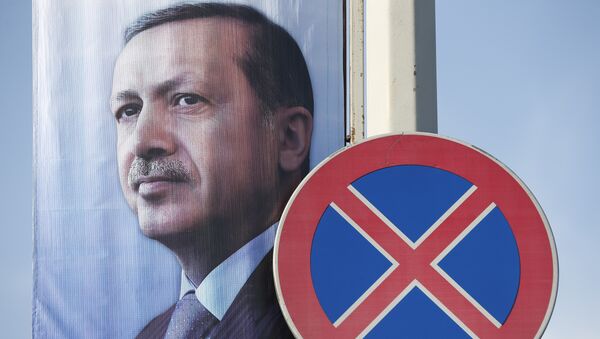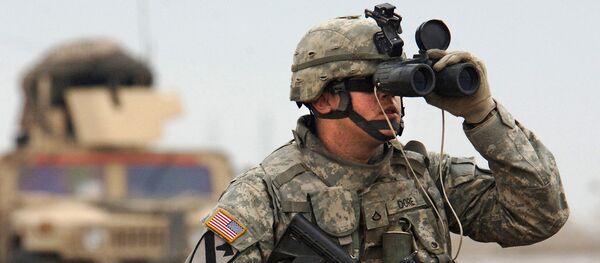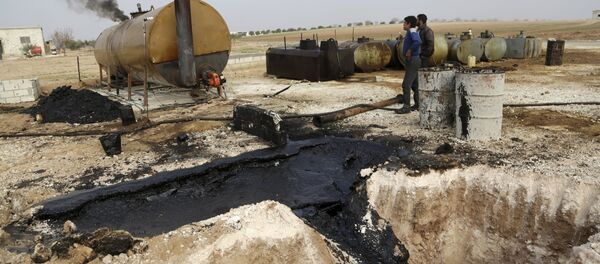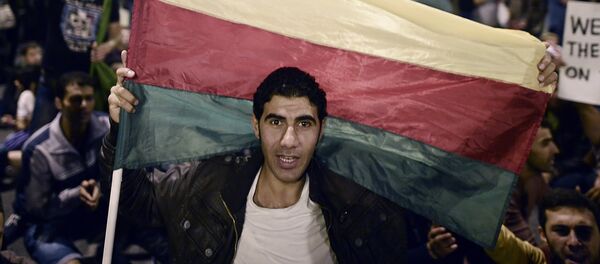It is no secret that the Erdogan regime has cracked down against independent journalism; to complicate matters further, Ankara's policies aimed against freedom of speech verge on the absurd.
"A statement issued this month by the Izmir Society of Journalists claimed that 31 journalists were in prison while 234 were in legal limbo awaiting trial. Over the course of last year, they added, 15 television channels had been closed and 56 journalists refused accreditation," the journalist who writes under the pseudonym John Butler notes in his article for The Spectator.
On January 8, during a popular Turkish television program "The Beyaz Show," a woman called in and introduced herself as Ayse Celik, a teacher from Diyarbakir. The woman bemoaned the fact that fierce clashes between Kurdish militants and Turkish security forces have been raging for months in Turkey's southeast.
"After Celik concluded her remarks, the showman — a pop-culture icon with no record of political activism — prompted the studio audience, mostly young people, to give her a big round of applause. And then, all hell broke loose in Turkey," Metin Gurcan, a columnist for Al-Monitor's Turkey Pulse, narrated in his piece.
Incredible as it may seem, the Turkish authorities immediately launched a full-scale investigation into the incident and charged the host, Beyazıt Ozturk, with "making propaganda for a terrorist organization."
Indeed, during the June 7 elections the left-leaning pro-Kurdish HDP received 13 percent of votes, that allowed the party to enter the parliament amid vocal displeasure from the ruling AKP that lost its overall majority.
In order to regain its power the AKP is seeking to kick the HDP out of parliament and "that means controlling the narrative about the ongoing war in Turkey's southeast," Butler emphasizes.
"The government arrests on a whim Kurdish or Kurdish-sympathetic politicians for being 'terrorist sympathizers,' but is curiously tolerant when dealing with actual Islamist terrorists [Daesh]," he adds.
However, this is only part of the story. While Erdogan and AKP's motivation behind cracking down against journalists who shed light on anti-Kurdish ethnic cleansing in the southeast is clear, there are other cases which seem completely absurd.
On November 13, Hurriyet's web supplement published a piece with a photograph of Leonardo da Vinci's famous "Last Supper." The article did not cover any political issue. However, the picture was slightly edited and one could spot Recep Tayyip Erdogan sitting to the right of Jesus Christ, Pinar Tremblay, a visiting scholar of political science at California State Polytechnic University, writes in her article for Al-Monitor's Turkey Pulse.
Daily @Hurriyet wrongly publishes Da Vinci's Last Supper's doctored version showing Erdogan, fires 2 journos in fear pic.twitter.com/VfwzQC0Vdh
— Mustafa Edib Yılmaz (@MustafaEdib) 13 ноября 2015
The website's editor Aynur Karabel, and Sermin Terzi, the director of content, were immediately fired. Moreover, on January 25, it was reported that prosecutors filed suit against Terzi and Karabel "for offending the president."
On the same day, another media source, CNN Turk, that quoted opposition leader Kemal Kilicdaroglu labeling Erdogan as a "dictator," also found itself "in the crosshairs of the Turkish legal system" for using a D-word in a reference to the President.
TR Madness: CNN Turk investigated for calling Erdogan a dictator while reporting that opp. leader called him a dict. https://t.co/GYftOwKWeW
— yusuf sayman (@ysfsymn) 25 января 2016
"Indeed, when Turkish political discourse is examined from a distance, one sees that it has become a vicious circle: The more the Justice and Development Party (AKP) idolizes Erdogan and tries to justify his dominance of the legislative and executive branches, the more suspicious and frustrated they become," she writes.
Butler echoes Tremblay's remark: according to the journalist, Erdogan is becoming increasingly "neurotic" and "paranoid" about the threats his government is facing as well as potential disloyalty within his own party.
"He has started to replace mainstream activists with advisers who… spend much of their time worrying about conspiracies involving sinister international financiers or telepathy. Perhaps Erdogan's accidental comparison of himself to the Führer was a Freudian slip," Butler concludes.






